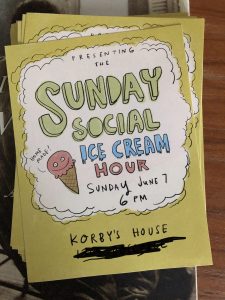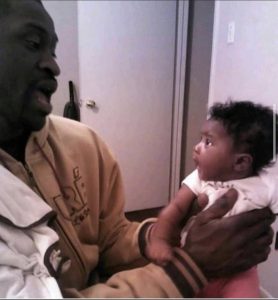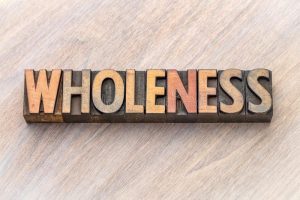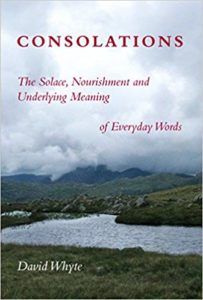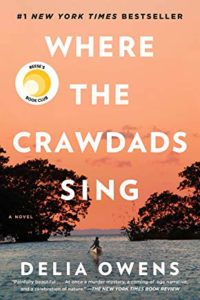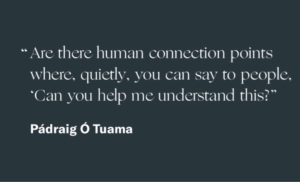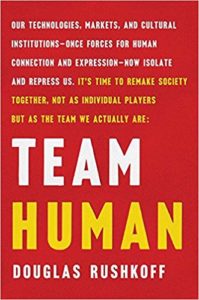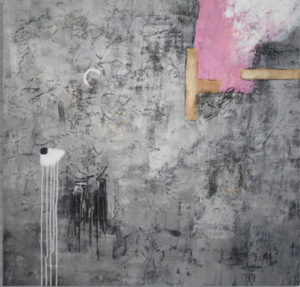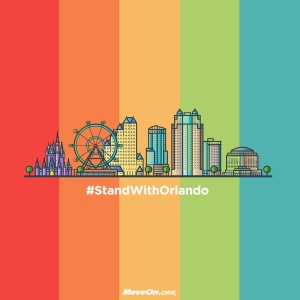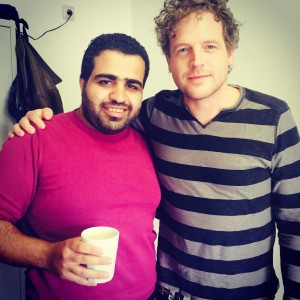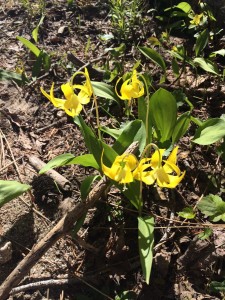connection
A note from Korby.
June 4, 2020Suspending my creative promotions for a moment.
The murder of George Floyd is something we can’t ignore. All of us feel that. If you watched the video of Mr. Floyd’s last moments on earth or even just saw that brutal, incendiary image of the officer’s knee crushing his neck, there is no looking away. The question has been forced.
The question: is it in any way acceptable for an officer of the law to kill a man — unarmed and handcuffed and pleading for mercy — in broad daylight with no provocation whatsoever?
The answer is no. It is not okay. In the name of the most basic definition of human decency, we demand justice for George Floyd.
But then there’s something more.
That photo. The white man’s knee, the black man’s gasp.
I can’t pretend to know what’s in your heart but I can look into my own. The question I keep asking myself is: to what degree am I complicit in George Floyd’s murder?
Sure I wasn’t there at the corner of Chicago Ave and East 38th in Minneapolis. But the fact remains that I am a benefactor, an inheritor of centuries of white privilege, white provision. The law purports Liberty and Justice for All, but even after two centuries of reform, the law is on my side first.
That officer’s knee was in my name. Me. The soft child of the American family, indulged and coddled.
A few freedoms I know and can name: I’m blind to most. I take for granted the world through which I move, as though it were my birthright.
But what would it be like not to have the whole system of justice and economic invention arranged like an armed phalanx behind you? What is it like to be black in America? I cannot know.
But I can listen.
That there are white folks like me awakening to the knowledge of not only our collective biases, but more importantly, the consequences of those biases, is perhaps cause for a quavering hope. It won’t give George Floyd his life back, or Breonna Taylor hers, or restore Ahmaud Arbery, Donnie Sanders, Tony McDade, or the extinguished lives of countless others. It might yield the imperfect consolation of justice. But what next?
What after?
The sense I’ve gotten from talking with my friends and family is that the spirit is willing, but the way forward is uncertain. It’s hard for an individual person, however well-meaning, to know what to do, where to start. I’m not sure whether a post, or a hundred posts, will add up to anything truly meaningful. I don’t know.
Change begins in the heart. Okay fine. But what does that mean? What does change actually look like? I can say any number of things to ally myself with people of color, but is that really a solution? Talk is cheap.
Voting change into office will help. Let’s get busy doing that.
But I’m looking for something personal. I think we all are. It’s not just about police brutality. It’s about wanting to be whole. Whole individuals. Whole people. A whole nation.
Well, what’s possible?
Let’s for once allow ourselves a wild hope. Let’s dare to concede the possibility that maybe, somewhere in the future there’s an integrated America, where Black Lives Matter, where the rights of each individual really are extended to all.
At the very least, maybe it’s possible to be a little more whole.
I’ve been quiet the last few days, mulling over this question. Reading a bunch of different perspectives. Trying to get my thoughts in order. Praying about it.
What would it look like to be a little more whole?
And this is where the death of George Floyd has shined a light in a dark corner of my own heart.
See, I live in a mixed neighborhood in East Nashville.
While its gentrification has been going on for more than fifteen years, I still have neighbors of color. Close neighbors. Two of the houses within a hundred feet of me are occupied by black families.
I have lived in this house for almost five years. I love living here.
But wait. Do I even know my black neighbors’ names?
No.
We have been living in parallel universes.
Worse, there are little kids in the family of one of those houses. What am I teaching them, by never saying hello when I see them playing in the yard? By them never seeing me talk to their parents?
I’m teaching them that white people don’t see them. They are invisible.
By the sheer act of being unneighborly to my literal neighbors, I’m participating in the furtherance of this no-longer-acceptable status quo.
There are other ways I, I know. But allow me to focus on this one for a second.
The question is, who is us? You draw a circle, everyone inside it is us. Great. But where is the boundary — the place where us ends and them begins? How big can we make the circle? I don’t know the answer to that question. But I think, where I live, I can expand my circle of us, even if just a little bit.
When I was a kid growing up in Twin Falls Idaho, it would sometimes happen on summer evenings that my dad would fire up the home made ice cream machine.
There is nothing as distinctive as the nasal whine of the buzzing motor cranking that frothy mixture of milk and sugar into something thick and sweet and frozen. The sound would fill us kids with anticipation. Shivers in our bellies.
Ours was a cheap unit and my dad would have to sit next to the machine on a chair and free up the motor with his hands when it would stall. After a half-hour or so he’d lift the frosty cold canister from the wooden bucket of rock salt and ice. Suddenly all the neighbor kids would magically appear in our driveway. My mom would hand out bowls and spoons and we’d eat our fill as fast as our mouths would let us. It was an unqualified joy.
So I’m going to try something. An experiment.
My friend Laura helped me make a few little handmade flyers. Yesterday I started handing them out to the people on my street — knocking on doors, inviting them to my house this coming Sunday, for an ice cream social.
Just, pop over for a bowl of homemade ice cream and say hello. Everyone welcome.
I have all kinds of neighbors. Young families, white folks, black folks, famous musicians, student renters, a couple people I’m pretty sure voted for Trump. All of us living right next to each other, basically never communicating beyond a wave from the sidewalk.
But what would it look like if we — for the time it takes to eat a little ice cream — act like the neighbors we are, for one hour, one time? I say let’s try it.
The Sunday Social Ice Cream Hour. Folks will come at 6. We’ll be done by 7:30 at the latest. Maybe a lot sooner if no one comes!
Either way I’m gonna do this again and again. I can be fairly relentless when I’ve made up my mind.
It might be amazing. It might be awkward. I don’t know!
The thing is, we have nothing to lose. It’s clear that doing what we’ve been doing is no longer acceptable. For me, change begins at seeing what’s in front of you. Seeing who’s in front of you. Just saying “Hey! What’s Up? Who are you?”
I’m not trying to claim this is the answer. But it might be an answer. To see if we can draw that circle a little bigger. White people living in mixed neighborhoods have a unique opportunity in this critical moment.
And that’s what I have felt these last few days: if not me, who?
Hey man, come over to my house. Bring your kids. Let’s hang out for a few minutes.
Maybe it’s a start. The invites are out. I’ll let you know how it goes.
I’m sorry Mr. Floyd. You didn’t die in vain. My prayer is that some small good can come of this. Maybe we can be a little more whole.
Korby is a writer/producer and singer/songwriter. He currently lives in Nashville.
George Floyd with his baby girl, Gianna.
A gofundme fundraising page has been created for Gianna.
https://www.gofundme.com/f/gianna-floyd-daughter-of-george-floyd-fund
From author Seth Godin:
“When a problem appears too large, too intractable and too unspeakable to deal with, it’s easy to give up.
There never seems to be enough time, enough resources or enough money to make the big problems go away.
Perhaps we can start with a very small part of it. One person, one opportunity, one connection.
Drip by drip, with commitment.”
David & Seth
January 2, 2020Seth Godin:
A Box of Infinity
It’s hard to look right at it.
The possibility that lies before us, the chance to connect, to lead, to be heard–it’s bigger than it’s ever been.
Tempting indeed to avert your eyes, because staring into infinity means embracing just how small we feel. We avert our eyes because to realize how much potential we have to contribute puts us on the hook.
But whether we ignore it or not, the infinity of possibility remains.
Dance with it.
︶⁀°• •° ⁀︶
David Whyte:
Hiding
It’s a way of staying alive. Hiding is a way of holding ourselves until we are ready to come into the light. Hiding is one of the brilliant and virtuoso practices of almost eery part of the natural world: the protective quiet of an icy northern landscape, the head but of a future summer rose, the snowbound internal pulse of the hibernating bear. Hiding is underestimated. We are hidden by life in our mother’s womb until we grown and ready ourselves for our first appearance in the lighted world; to appear too early in that world is to find ourselves with the immediate necessity for outside intensive care.
Hiding done properly is the internal faithful promise for a proper future emergence, as embryos, as children or even as emerging adults in retreat from the names that have caught us and imprisoned us, often ways where we have been too easily seen and too easily named.
We live in a time of the dissected soul, the immediate disclosure; our thoughts, imaginings and longings exposed to the light too much, too early and too often, our best qualities squeezed to soon into a world already awash with ideas that oppress our sense of self and our sense of others.
What is real is almost always to begin with, hidden, and does not want to be understood by the part of our mind that mistakenly thinks it knows what is happening. What is precious inside us does not care to be known by the mind in ways that diminish its presence.
Hiding is an act of freedom from the misunderstanding of others, especially in the enclosing world of oppressive secret government and private entities, attempting to name us, to anticipate us, to leave us with no place to hide and grow in ways unmanaged by creeping necessity for absolute naming, absolute tracking and absolute control.
Hiding is a bid for independence, from others from mistaken ideas we have about ourselves form an oppressive mistaken wish to keep us completely safe, completely ministered to, and therefore completely managed. Hiding is creative, necessary and beautifully subversive of outside interference and control. Hiding leaves life to itself, to become more of itself. Hiding is the radical independence necessary for our emergence into the light of a proper human future.
The Marsh Girl
April 13, 2019“Yet in reality, she was only an abandoned child, a little girl surviving on her own in a swamp, hungry and cold, but we didn’t help her. Except for one of her only friends, Jumpin’, not one of our churches or community groups offered her food or clothes. Instead, we labeled and rejected her because we thought was was different. But, ladies and gentlemen, did we exclude Miss Clark because she was different, or was she different because we excluded her? If we had taken her in as one of our own, I think that is what she would be today, If we had fed, clothed, and loved her, invited her into our churches and homes, we wouldn’t be prejudiced against her.”
-Delia Owens
In the Shelter
-Poet and theologian, Pádraig Ó Tuama’s work centres around themes of language, religion, conflict and art.
Team Human
December 17, 2018A future centered on our pre-digital values of connection, creativity and respect.
‘Team Human’
“Find the others; together let’s make the future that we always wanted.”
[Publishes January 22, 2019]
Collective consciousness.
May 5, 2018‘The dynamic relationships in a family, classroom, workplace, or grassroots movement can have an evolutionary effect, creating new ways of thinking and being. Louis Savary and Patricia Berne share how Christopher Bache, a college professor, noticed what he called “collective consciousness” emerge when he gave assignments to small groups of students. Many showed abilities “as team members” that he hadn’t witnessed before in their individual work:
Bache recognized that each of the teams in his classroom had a life of its own . . . [and] enjoyed a kind of “collective consciousness.” They were thinking as one unit and each person seemed to have access to the consciousness of the others. When someone on the team made a good suggestion, everyone on the team seemed to recognize its value, so it became easy to implement with minimal discussion, without people taking sides, pro and con.
Savary and Berne turn to Pierre Teilhard de Chardin to explain how this happens:
Teilhard’s insight [that union differentiates] revealed that each student team had become a true unity, or “union.” It had also become a new being. . . . The team as a unit was more complex than any of the individuals in the team, and their shared consciousness was richer . . . than any of the team members.
Furthermore, that new being (the Third Self, or the team, itself) allowed each member to find a fuller identity and capacity within that team. Each student was, in Teilhard’s words, “differentiating” himself [or herself]. . . . In order to contribute to the success of the team, each member was challenged by that team spirit to manifest latent abilities in themselves. . .
Love is the most powerful force or energy in the universe. That power is multiplied in relationships. Love’s potency is released most powerfully among people who have formed a relationship (a union). People who truly unite for a purpose beyond themselves become “differentiated” as they unite and work together in a shared consciousness to achieve their larger purpose.
In a true relationship, no one’s individuality is lost. It is increased. That is the beauty of Connections.
These unions that enjoy a collective consciousness become the launching pads for the next stage of evolution, as we learn consciously how to create them and use them. [2]
I see groups working creatively on many fronts, often outside church and political structures, with a growing capacity for what many call “intersectionality” (recognizing the interconnectedness of race, gender, and class). One wonderful example is the new Poor People’s Campaign led by Rev. William Barber and Rev. Liz Theoharis, and joined by people across the United States. They’re continuing Martin Luther King, Jr.’s work to dismantle racism, poverty, and war. (Learn more about the Poor People’s Campaign and how you can join below today’s meditation.) Next week we’ll explore more of the generativity and healing that can happen within such community.’
-Richard Rohr, Center for Action and Contemplations
~
The Poor People’s Campaign: A National Call for Moral Revival
Fifty years after the assassination of Martin Luther King, Jr., people around the country are taking up his mantle, challenging systemic racism, poverty, the war economy, and ecological devastation. We are compelled to stand with those on the margins. Rev. Dr. William Barber, Rev. Dr. Liz Theoharis, and organizations across the United States are mobilizing thousands to mass non-violent civil disobedience from May 13-June 21 at state capitals and in Washington, D.C.
Learn more and sign the pledge at The Poor People’s Campaign: A National Call for Moral Revival poorpeoplescampaign.org
Standing.
June 12, 2016A human perspective.
October 7, 2015The Syrian refugee camps are more than numbers, they are people with stories. Singer/songwriter and Sun Valley favorite Korby Lenker visited a camp one day while performing in Germany. He and a friend rode their bikes out a camp, not knowing what they were doing, or what they would say, or if anyone could speak English. Then they found Muhammad. This is his story. And their connection.
‘This is my new friend Muhammad. He’s a Lebanese-born Palestinian who worked for a news program in Syria before everything went to hell and he fled to Germany. We met here, in a small town called Lüneburg.
I’m sleeping in a house down the street for the next few days. What happened was, this morning over coffee my friend Jas told me the city had accepted several thousand refugees and that they were living in two separate camps at the edge of town. She said one was close by – we could get there by bike. So we got on the bikes and went. Neither of us was sure what I had in mind.
We biked through a forest and past a jail and alongside a cornfield and then we were there. A metal fence surrounded what looked like ship containers, white, with a little square window cut into each one. Jas and I stood outside the fence, straddling our bikes, hesitating. It was a nice day, warm and clear. She looked at me like what are you thinking here pal so I said, “Maybe we just go inside and ask the first person we see if they speak English?”
“Or German,” she added.
Yes. So we pushed our bikes through an open gate and up to one of the open doors at the entrance to a container house. The area felt deserted. I could hear noises inside the buildings, but outside it was pretty empty. Short dry crabgrass filled the small courtyard. A couple kids were pushing something around on a blanket. A guy leaning against a wall was talking on his cell phone.
I kickstood my bike and looked inside the door, but it was just a long empty hallway. Unclear the way forward.
Definite moment of awkwardness here. Borderline trespassing. Maybe I shouldn’t have left my passport back at the house. I avoided Jas’ eyes because I imagined she might be a little uncomfortable and I knew if I saw the discomfort I would have to do something conciliatory, like leave.
Suddenly the guy on the cellphone had finished talking and was heading back toward the container house, toward us.
When he got close I said “Hey.” Then I said, “Do you speak English?”
“Yes,” he said and stopped walking. He had large eyes with heavy lashes and close-cropped tight curly hair. Also he smiled, which is all I ever ask for really when I wander into a stranger’s home uninvited, so I said, “Hey cool. Well, I don’t know what I’m really looking for, I just wanted to say hello to —”
Then I was like, well what are you trying to do here Lenker? Come and gaze at the real-life dispossessed so you can put another adventure in your bag? Is this man and his story the next souvenir to go into your suitcase, beside the gummy bears and Ampelmånnchen? Do you think you are going to actually help him?
And then I thought, well probably not, but it would be fun to play ping pong with someone here. Maybe he plays ping pong.
So I said to Muhammad, “I guess I was looking for you.”
“Well you have found me,” he smiled with all the teeth. “I am here visiting my friends. You will come with me?”
I looked at Jas. She seemed to be down for it.
I said: “We would love to do this.”
So he lead the way and we followed him into the container ship house that was actually a dozen container ship houses stacked side by side connected by a long white hallway. Manufactured everything. But clean. Very new. No ping pong tables anywhere, but there were plenty of other things going on so I was feeling okay about it.
We walked past a dozen or so open doorways and in each, I saw a man or a handful of men, sitting on beds and chairs, sipping what I assumed was tea. Some wore tunics, some old-looking jackets. A gathering theme was not forthcoming. Beside the two kids outside, I didn’t see any children. No women in sight anywhere.
Finally Muhammad stopped in front of one of the doors and made an unfamiliar gesture I took to mean enter here. So I entered here and Jasmine followed. There were three other men, all older than our new friend, sitting around an boxy old-style television. One wore a white hat like a baseball cap with the brim missing. The tv was tuned to the Al Jezeera channel. I could tell because Arabic writing filled the bottom of the screen. The subject being discussed must have been the recent drone strikes the UK had done on those guys who fled to fight for ISIS because it was showing clips of the British house of commons. I recognized the footage as the same I had seen on the BBC channel in the hotel I stayed in in Cardiff two days before.
It’s not like I sat and stared. I saw this for one second and then who cares, because there were real people in the room.
An old man stood up and shook my hand. His skin was dark and his face looked unnaturally smooth with sharp straight lines etched in it like he had been burned all over. I didn’t ask. Muhammad gestured I should sit on the bed and he pulled a seat up for Jas and then the man with the burned skin stood up and walked across the room and picked two enormous bruised bananas out of a basket and handed one to each of us. It was all very easy going.
These people had known me for less than one minute and they were just opening up their home to us and here’s some fruit and okay let’s talk. So we talked. I asked Muhammad his story and he told me in mostly perfect english about his journalism background, his term at the news program in Syria which he named and I have forgotten. He said ever since coming to Germany months ago (he was in an earlier wave than the most recent) he spent his time learning German and helping his friends send emails to the embassy and navigate the considerable sturm and drang that precedes legal immigration.
He asked me where I was from. I said Nashville. His expression said he had never heard of it.
I asked him where his family was. He said they were all back in Lebanon, waiting for an appointment with the embassy February 16. I could tell the date had great weight. It was the only really specific thing he said.
“Do you think you will ever go back?” I asked.
“No,” he said. “I am here until forever.”
When I asked him if he felt like he was starting over he didn’t understand what I was saying. Jas said to ask him a different way.
“Beginning again.” I said. “Do you feel like you are beginning again?”
“That is it,” he said the large eyes glowing. “I am learning German. I am getting better at English. I am beginning again.”
I’m not trying to make a hero out of him. I think I just want to point out that he was, well, a person. A normal, intelligent man facing a way more difficult situation than you or I will probably ever endure. And he was meeting the challenge and helping out his friends and he also had time for some idle chatter with people who couldn’t really actively help him in his cause. We were just hanging out.
We talked for awhile and I ate what admittedly was a pretty far gone banana and then that was done and Jas said we had to go rent my PA system for tonight’s show. Muhammad and I traded numbers, email, Facebook and I fully expect to hear from him again soon.
Who knows where it’s all going? I just asked him if he spoke English.’
Nature…every part melting into another
May 13, 2015“…bulbs of the Yellow fawn lily are an important food of the grizzly bear and Mule deer.”
“As I look at Nature I see ho every part melts into another in a great transmutation – – one part could not exist without the others. In human nature the fusion of love and thought makes us One. In the true meeting of hearts and minds there is scarcely even the need of words. I know that in the One Mind there cannot be misunderstanding, in the One love all are included.”
